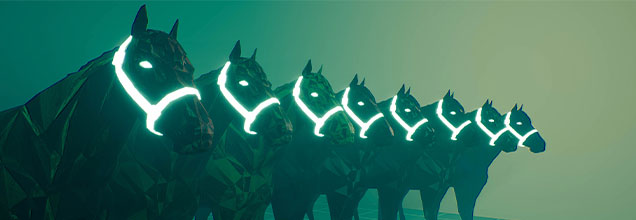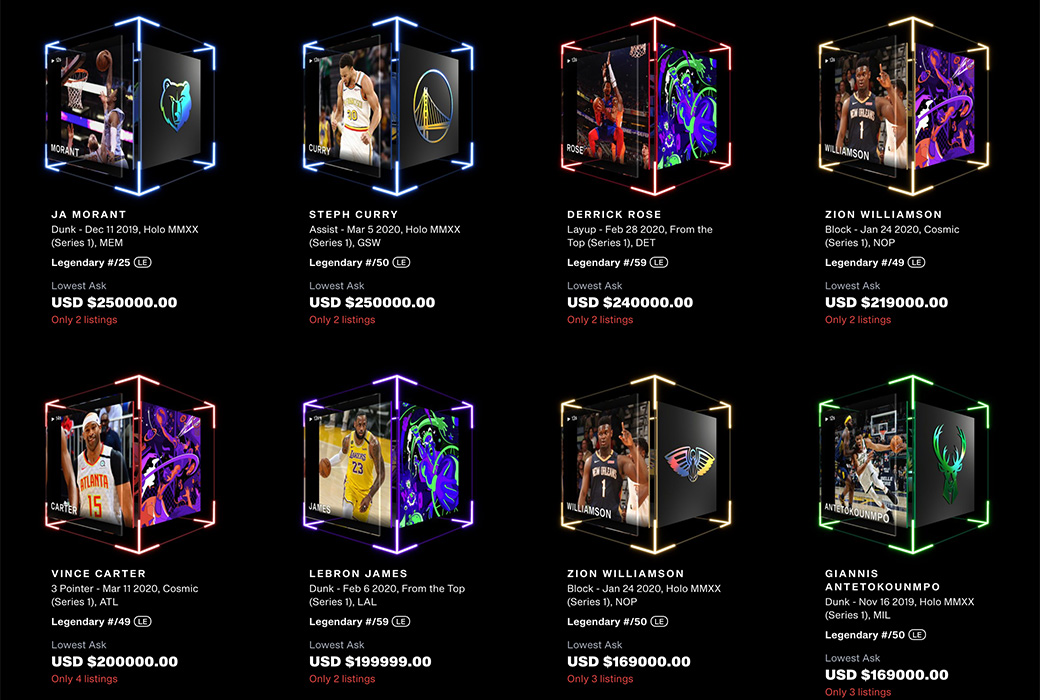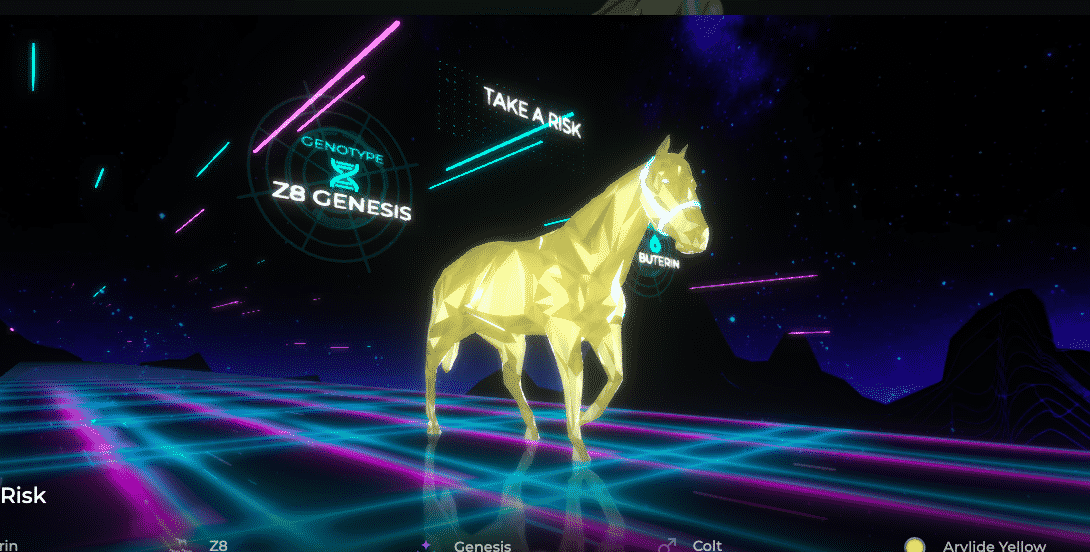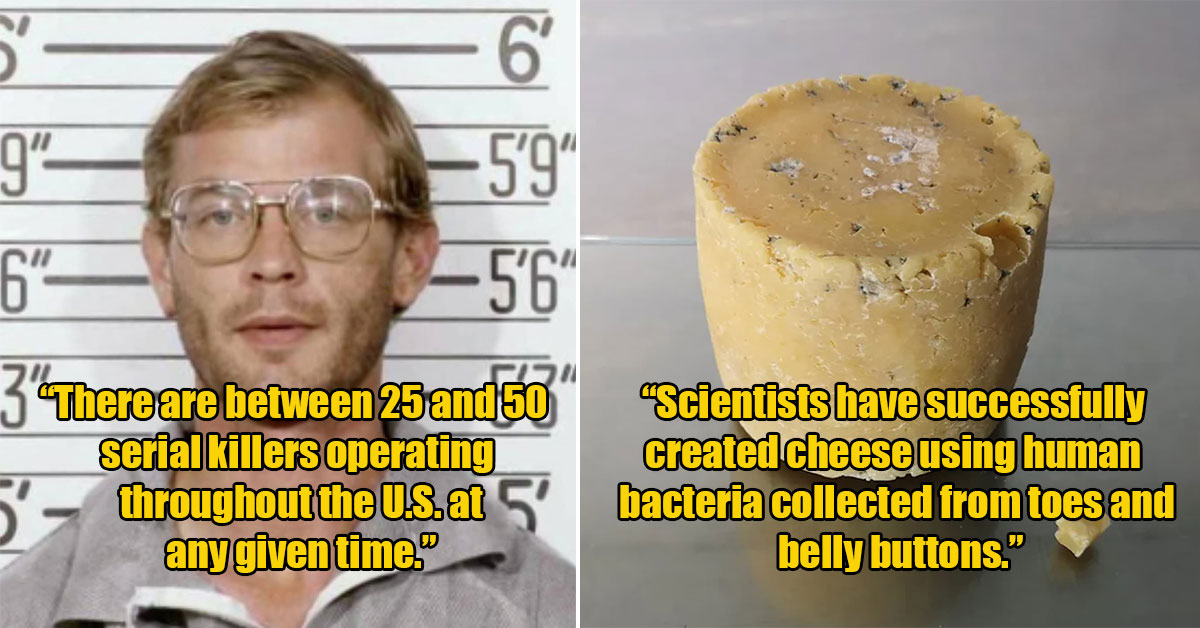Blockchain Based Games Give Us a Glimpse Into Our Virtual Future
Is blockchain gaming here to stay in a competitive and real way? Games like Zed Run and NBA Top Shot show the possibility for wealth and success...
Published 3 years ago in Ftw

“In my world, Zed is real." VHS co-founder Chris Ebeling has been quoted saying about the digital horse racing game Zed Run. "It exists on a parallel timeline to ours; it’s quantum physics. It’s 2150 on a planet called Novus Earth. On this Earth, digital horse racing reigns supreme. It’s been put in place to balance out wealth.” Sure thing dude, whatever you say.
Crypto, the blockchain, and video games seem like a match made in heaven, and while there is much to learn, it's safe to say people like Ebeling are highly invested in the future of blockchain-based services and video games.
Dapper Labs Inc.’s role in the canon of blockchain gaming was introduced to me in a live Clubhouse conversation from a16z, which explained how to find angel investors in crypto. They host a running Games Club session Wednesdays at 5 pm PT where they discuss the future of e-sports, AR/VR, and game development. Dapper Labs Inc., trademarked “The NFT Company”, makes some of the most notable blockchain-based experiences and digital collectibles on the market now. They have a hold on the sports market and sell limited-edition moments from UFC and NBA history.

NBA Top Shot is Dapper Labs’ digital response to trading baseball cards. Historically, sports trading cards may do well on eBay but since March 2021, NBA Top Shot has sold over 2 million moments, racking up over $300 million USD. Instead of buying hardcopy cards which just list player stats, these collectibles also feature specific video highlights from games like notable plays and their descriptions. On the NBA Top Shot website, players can organize their works into bespoke categories like highlight reels or fantasy teams. The worth and rarity of each of these pieces fall somewhere in a tiered ranking system and sit in a numbered set with a unique serial number.
Currently, the available tiers include Common, Rare, Legendary, and Ultimate. Common tier pieces are re-minted until the company retires each moment. Each moment has a live circulating count which marks the measure of rarity. Rare moments are marked “limited edition”, which means production has permanently ended. The edition size of rare moments varies between 500-4,999 pieces. The quality of the design of each piece increases parallel to the tier. Ultimate tier moments are only available through auction and come in an edition size of three. Base sets or Common Packs start at $9 USD for nine common moments. The other tiers make less sense and feature primarily common moments as well, for instance, Rare Packs feature seven common moments and one rare moment (starting equivalent of $49 USD), and Legendary Packs hold six common moments, three rare moments, and one legendary moment (starting equivalent of $999 USD).
Cryptokitties is a Dapper Labs creation, where the player buys a digital cartoon cat after inspecting the value of its lineage. It would be a gentle, if not too precious, easy first foray into buying NFT’s as “CryptoKitties is a game centered around breedable, collectible, and oh-so-adorable creatures we call CryptoKitties! Each cat is one-of-a-kind and 100% owned by you; it cannot be replicated, taken away, or destroyed.”

Zed Run is literally a horse of a different color. Virtually Human Studio’s (VHS) Zed Run is similar to Cryptokitties, but instead of cats, the player breeds, races, and trades digital racehorses which are kept in stables. The game was launched in 2019 and recently enlisted Atari for future development of an ecosystem including weather conditions and track location surrounding the game. Zed Run horse owners are able to use AR technology to be in the “same room” as their horse. Ebeling’s vision for players is that they will be able to earn a living off of the game like a digital Kentucky Derby. Currently, all horses are sold out. Horses can be purchased on an open marketplace for the equivalent of between $100 to $125,000 USD.
Gaming labs coming out with ventures like Dapper Labs and VHS express perhaps unwarranted optimism that blockchain gaming is the way of the future and not a phase. Even Gamestop has embarked on an NFT web portal in which players will use Ethereum to participate in games. The slogan for their new project is "Power to the players. Power to the creators. Power to the collectors." However, games like Axie Infinity, which is similar to Pokémon, have had issues with playership due to their dependency on Ethereum, and the volatility of its fluctuating value scale.
Experts from NASDAQ suggest that one barrier to entry is that different games use different cryptocurrencies and therefore the incentive to play certain games are diminished or enhanced by the means of purchase, not the content or value of the game itself. They believe if all games are purchased in the same way, “blockchain technology can become the basis of massively multiplayer games powered by community effort. These games can be infinitely modifiable, owned by the community, and run on decentralized economies that reward content creators.” Nine Chronicles, which is a free open-source RPG, explores this as it runs on the blockchain without centralized servers.
Is blockchain gaming here to stay in a competitive and real way? If game developers can work together to regulate the value of the items purchased in the game that deal with market volatility, they will have a better chance. There seems to be a lot of greed in this space so this probably won’t happen until the government or SEC gets involved, which, unfortunately, may not be until the novelty of buying cartoon animals has lost its appeal.



